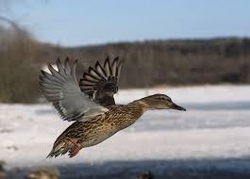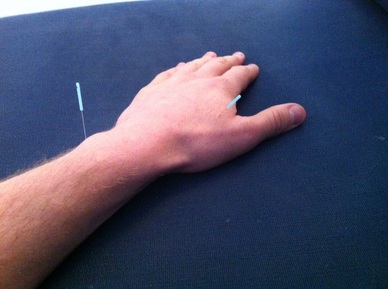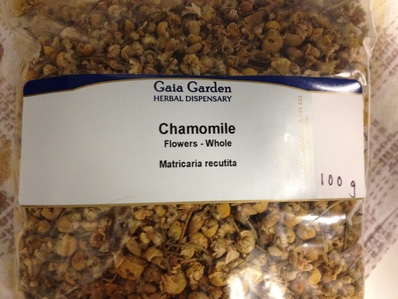An Excerpt From Eckhart Tolle's 'A New Earth' "In The Power of Now, I mentioned my observation that after two ducks get into a fight, which never lasts long, they will separate and float off in opposite directions. Then each duck will flap its wings vigorously a few times, thus releasing the surplus energy that built up during the fight. After they flap their wings, they float on peacefully, as if nothing had ever happened. "If the duck had a human mind, it would keep the fight alive by thinking, by story-making. This would probably be the duck's story: 'I don't believe what he just did. He came to within 5 inches of me. He thinks he owns this pond. He has no consideration for my private space. I'll never trust him again. Next time he'll try something else just to annoy me. I'm sure he's plotting something already. But I'm not going to stand for this. I'll teach him a lesson he won't forget.' And on and on the mind spins its tales, still thinking and talking about it days, months, or years later. As far as the body is concerned, the fight is still continuing, and the energy it generates in response to all those thoughts is emotion, which in turn generates more thinking. This becomes the emotional thinking of the ego. You can see how problematic the duck's life would become if it had a human mind. But this is how most humans live all of the time. No situation or event is ever really finished. The mind and the mind-made 'me and my story' keep it going.
"We are a species that have lost its way. Everything natural, every flower or tree, and every animal have important lessons to teach us if we only stop, look, and listen. Our duck's lesson is this: Flap your wings--which translates as 'let go of the story' - and return to the only place of power: the present moment." - Eckhart Tolle, from A New Earth: Awakening to Your Life's Purpose
0 Comments
Anxiety and insomnia are prevalent problems faced by many people in modern society, and are very common reasons for visiting the doctor. If you go to your MD complaining of anxiety and insomnia, chances are you will walk away with a prescription for medications such as a Benzodiazepine (Valium) or Zolpidem (Ambien). However, you may want to consider natural treatment options first, as a new study has linked several of these medications to increased risk of death. The study published in the British Medical Journal followed people in Britain who were prescribed anti-anxiety or insomnia medications for 7 years, and matched them to controls (people not taking the medications). After adjusting for factors such as age, other medication use, smoking, alcohol use, and socioeconomic status, they concluded that these medications doubled the risk of death. Now, this is an observational study, so is does not necessarily mean that the medications themselves caused the increased mortality - however, it does stress the importance of considering non-drug treatment alternatives for anxiety and insomnia. Luckily, there are several tools in the Naturopathic repertoire that are safe and very effective at treating anxiety and sleep problems! Two of my favourite treatments for these common conditions are acupuncture and herbal medicine. Acupuncture Acupuncture has been used for thousands of years, and in the past few decades has been subjected to modern clinical studies. Rather than specifically treating "anxiety" or "insomnia," in Traditional Chinese Medicine (TCM) we look for patterns in the body and signs of imbalance. By restoring balance and the flow of Qi (life energy), symptoms such as anxiety and insomnia tend to resolve. After an acupuncture session many people report a deep sense of calm and relaxation, lowered levels of stress and anxiety, and greatly improved sleep. This in turn leads to more energy and vitality, and overall better quality of life. While it has long been known to practitioners and patients that acupuncture is beneficial for anxiety and insomnia, the physiological mechanisms were unknown. However, recent research has shed some light on how exactly acupuncture aids in these conditions. Some of the ways acupuncture helps with anxiety and insomnia is by :
Herbal Medicine Another safe and effective treatment for anxiety and insomnia is herbal medicine. Botanicals have been used as medicine for as long as doctors have existed, and many of the drugs on the market today are derived from common herbs. Categories of herbal actions that can help include the calming nervines and sedative/hypnotic herbs. Some of the most effective herbs for anxiety and insomnia include: Passionflower (Passiflora incarnata)
Chamomile (Matricaria recutita)
Skullcap (Scutellaria lateriflora)
Lemon Balm (Melissa officinalis)
There any many many more herbs that can be effective for anxiety and insomnia, and it is always important to consult a health care practitioner to determine which ones are best suited for you and to ensure their safe use. Sources: Weich, Scott, et al. "Effect of anxiolytic and hypnotic drug prescriptions on mortality hazards: retrospective cohort study." BMJ: British Medical Journal 348 (2013). Spence, D. Warren, et al. "Acupuncture increases nocturnal melatonin secretion and reduces insomnia and anxiety: a preliminary report." The Journal of neuropsychiatry and clinical neurosciences 16.1 (2004): 19-28. Eich, H., et al. "Acupuncture in patients with minor depressive episodes and generalized anxiety. Results of an experimental study." Fortschritte der Neurologie-Psychiatrie 68.3 (2000): 137-144. |
AuthorDr. Tomah Phillips, ND Archives
April 2020
Categories
All
|



 RSS Feed
RSS Feed